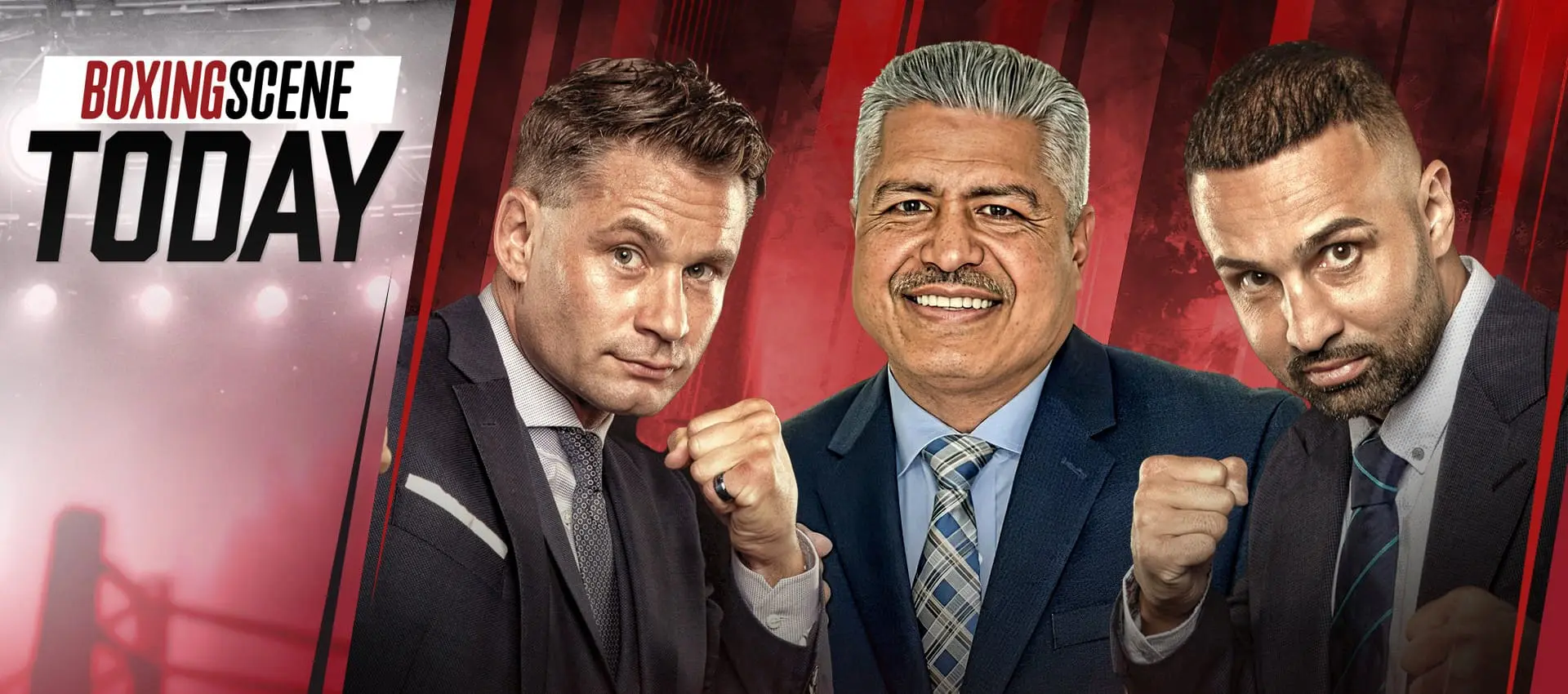
Friday | Jul 11, 2025 | 8:00 PM EST
Katie Taylor vs Amanda Serrano
Alycia Baumgardner vs Jennifer Miranda
Ellie Scotney vs Yamileth Mercado
Shurretta Metcalf vs Cherneka Johnson
Savannah Marshall vs Shadasia Green
Chantelle Cameron vs Jessica Camara
Ramla Ali vs Lila Furtado
Tamm Thibeault vs Mary Casamassa
NetflixNew York City, New York

Saturday | Jul 12, 2025 | 6:00 PM EST
Vladimir Hernandez vs Francisco Veron
Erick Badillo vs Gerardo Zapata
ProBox TVFresno, California

Saturday | Jul 19, 2025 | 8:00 PM EST
Jesse Rodriguez vs Phumelele Cafu
Diego Pacheco vs Trevor McCumby
Austin Williams vs Etinosa Oliha
DAZNFrisco, Texas
'BoxingScene Today'Talk Show
Pauli, Algieri, and Coach Garcia breakdown today's top stories

Upcoming episode - coming soon
Boxing Interviews
Interviews with boxing biggest stars










